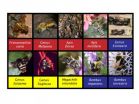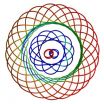(Press-News.org) The act of making a recommendation appears to change the way physicians think regarding medical choices, and they often make different choices for themselves than what they recommend to patients, according to a survey study published in the April 11 issue of Archives of Internal Medicine, one of the JAMA/Archives journals.
"Patients facing difficult decisions often ask physicians for recommendations," the authors write as background information in the study. "However, little is known regarding the ways that physicians' decisions are influenced by the act of making a recommendation."
Peter A. Ubel, M.D., of Duke University, Durham, N.C., and colleagues tested whether making a treatment recommendation changes the way physicians think about medical decisions. The authors surveyed two samples of U.S. primary care physicians, and presented each with one of two clinical scenarios.
In the first scenario, 500 physicians were asked to imagine that either they or one of their patients had just received a diagnosis of colon cancer and faced a choice of one of two operations to treat the cancer. Both surgeries cured the colon cancer in 80 percent of patients, however one surgery had a higher mortality (death) rate, but fewer adverse effects, whereas the second surgery had a lower death rate but a small percentage of patients experienced colostomy, chronic diarrhea, intermittent bowel obstruction or a wound infection.
A total of 242 physicians returned the colon cancer questionnaire (response rate of 48.4 percent), and when asked to imagine they had received the cancer diagnosis, 37.8 percent of physicians chose the surgical procedure with a higher rate of death, but a lower rate of adverse effects. Conversely, when asked to make a recommendation for a patient, only 24.5 percent of physicians chose this option.
The second scenario asked 1,600 physicians to imagine that a new strain of avian influenza had just arrived in the U.S. One group of physicians were asked to imagine they had been infected, and the other group was asked to imagine that his or her patient was infected. One treatment was available for this strain of influenza: an immunoglobulin treatment, without which persons who contract flu have a 10 percent death rate and a 30 percent hospitalization rate with an average stay of one week. The treatment would reduce the rate of adverse events by half, however it also causes death in 1 percent of patients and permanent neurological paralysis in 4 percent of patients.
The avian influenza scenario was returned by 698 patients (response rate of 43.6 percent), and 62.9 percent of physicians chose to forgo immunoglobulin treatment when imagining they had been infected, to avoid its adverse effects. However, when imagining that a patient had been infected, only 48.5 percent of physicians recommended not getting the treatment.
"In conclusion, when physicians make treatment recommendations, they think differently than when making decisions for themselves," the authors conclude. "In some circumstances, making recommendations could reduce the quality of medical decisions. In at least some circumstances, however, such as when emotions interfere with optimal decision making, this change in thinking could lead to more optimal decisions. In debating when it is appropriate for physicians to make treatment recommendations to their patients, we must now recognize that the very act of making a recommendation changes the way physicians weigh medical alternatives."
###
(Arch Intern Med. 2011;171[7]:630-634. Available pre-embargo to the media at www.jamamedia.org.)
Editor's Note: This study was funded by a grant from the National Institutes of Health, a career award from the American Cancer Society, a National Science Foundation Graduate Research Fellowship, and a Robert Wood Johnson Health Policy Investigator Award. Please see the article for additional information, including other authors, author contributions and affiliations, financial disclosures, funding and support, etc.
To contact Peter A. Ubel, M.D., call Chris Privett at 919-660-8090 or e-mail chris.privett@duke.edu.
END
CHAMPAIGN, Ill. — Most people have trouble telling them apart, but bumble bees, honey bees, stingless bees and solitary bees have home lives that are as different from one another as a monarch's palace is from a hippie commune or a hermit's cabin in the woods. A new study of these bees offers a first look at the genetic underpinnings of their differences in lifestyle.
The study focuses on the evolution of "eusociality," a system of collective living in which most members of a female-centric colony forego their reproductive rights and instead devote themselves to specialized ...
Intense Peru, experts in designing unique travel experiences to Peru, recently announced a 10% savings on all Machu Picchu tours in recognition of the 100 year anniversary of the discovery of Lost City of the Incas by American archaeologist Hiram Bingham. Every year an increasing number of travelers come from different parts of the world to admire the Historic Sanctuary of Machu Picchu. Some travelers have little information and some others not only are well prepared but fill their tour guides with enthusiastic comments and questions. And the truth is that no matter how ...
Angiogenesis, the development of new blood vessels, is required during embryonic development and wound healing, as well as during disease processes such as tumor growth. The signals that direct angiogensis are incompletely understood, but could represent novel targets for the development of therapies that promote or inhibit this process.
In this paper, Young-Guen Kwon and colleagues, of Yonsei University in Seoul, Korea, investigated the role of two related proteins- DKK1 and DKK2- in angiogenesis. These proteins are known to have similar functions in inhibiting a particular ...
PASADENA, Calif.—When black holes slam into each other, the surrounding space and time surge and undulate like a heaving sea during a storm. This warping of space and time is so complicated that physicists haven't been able to understand the details of what goes on—until now.
"We've found ways to visualize warped space-time like never before," says Kip Thorne, Feynman Professor of Theoretical Physics, Emeritus, at the California Institute of Technology (Caltech).
By combining theory with computer simulations, Thorne and his colleagues at Caltech, Cornell University, ...
Denver, CO., April 11, 2011 – Research to be presented this week at The Federation of American Societies for Experimental Biology (FASEB) Conference in Washington, D.C., demonstrates that consumption of white potatoes (non-fried) by children does not displace other vegetables from children's meals. In fact, meals that contain white potatoes contain more servings of other vegetables, and are significantly higher in potassium, fiber and vitamin C. Both potassium and fiber were identified as nutrients of concern in the 2010 Dietary Guidelines, released February 2011.
"Potatoes ...
Washington, D.C., April 11, 2011 – In a first-of-its-kind study with nuts, randomized controlled-feeding research conducted by the Agricultural Research Service (ARS) of the United States Department of Agriculture (USDA) found that fat in pistachios may not be completely absorbed by the body. The findings indicate that pistachios may actually contain fewer calories per serving than originally thought – further validating pistachios as one of the lowest calorie nuts with 160 calories per 30 gram serving (approximately 1 ounce). The study was presented today at the Experimental ...
Fear of the unknown is one of the greatest issues facing patients with glaucoma - the second leading cause of blindness worldwide after cataracts - according to research in the April issue of the Journal of Advanced Nursing. People also worry about how the eye disease, which can be hereditary, will affect other members of their family.
Researchers spoke to 24 people with glaucoma, which can lead to severe restriction of the visual field and irreversible blindness if it is not detected early enough and successfully treated.
It's estimated that 4.5 million people worldwide ...
Targeted photodynamic therapy can completely eradicate some models of cancer, according to the latest research by UK and Swiss scientists, published in the current issue of the British Journal of Cancer.
The team – including researchers from the University of Hull and ETH Zurich – linked light-sensitive molecules with antibodies that target tumour blood vessels. When irradiated with light, the molecules create particles known as reactive oxygen species, which in high numbers cause irreparable damage to cells.
By ensuring the light-sensitive molecules were targeted at ...
People that want to learn about the customs of different nations can head to the Aberdeen International Fun Day to see all sorts of activities. Performers will be giving an insight into the music and dance of each of their representative countries and this will include dances from Russia, India, Sweden and China. Attendees can see firsthand the steps of Bhangra dances, take part in a Tai Chi class or even listen to the melodic voices or a Gaelic choir.
The performances are designed to bridge the gap between communities and for people to learn about each other's cultures ...
The Internet has no borders, no universal legislation, and although highly social and distributed is not represented by cooperation across the globe. Given those characteristics how might nations make their plans for counter terrorism in cyberspace as active online as they are in the everyday world? A collaboration between researchers in the US and Iran hoped to address that issue and its findings are published this month in the International Journal of Internet Technology and Secured Transactions.
Incidence of online crime has grown considerably in recent years, with ...


